The Well-Tempered Ear
Is a lot of ‘woke’ music inferior to the music it replaces?
12 Comments
PLEASE HELP THE EAR. IF YOU LIKE A CERTAIN BLOG POST, SPREAD THE WORD. FORWARD A LINK TO IT OR, SHARE IT or TAG IT (not just “Like” it) ON FACEBOOK. Performers can use the extra exposure to draw potential audience members to an event. And you might even attract new readers and subscribers to the blog.
By Jacob Stockinger
Is a widespread attempt to explore historically ignored music and overlooked, marginalized composers interfering with the public hearing greater, more important and more beautiful music?
It is a problematic but timely question or issue, especially during an era of political correctness and in our current culture wars.
To be sure, you can hear some memorable music that has unjustifiably been excluded from the so-called canon. The discovery of Florence Price (below) is a prime example. The same can be said for Clara Schumann.
It does seem that a lot of the newly rediscovered pieces and composers — Black, Hispanic, Indigenous, Asian, women, LGBT — deserve an initial hearing, if only out of curiosity and to correct the historical record.
But after being heard for the first time, many of them seem second- or third-rate. They deserve to be shelved for another few decades in favor of restoring greater music and greater composers to the active performing repertory.
To The Ear, for example, the symphonies by Michael Haydn always sound inferior to those of his famous older brother Joseph. And it doesn’t matter what critics and audiences of the day said, history its often — if not always — the better judge. The symphonies and violin concertos of the impressive and influential Joseph de Boulogne (Chevalier de Saint-Georges, below) are simply not as artistically interesting or engaging as those by his contemporary Mozart.
Anyway, whatever you think, The Ear came across an essay on the internet by George Leef that was published in The National Review — the iconic conservative political magazine founded by William Buckley. It contains background about current nationwide programming guidelines and organizations that you might not know.
It is an interesting point of view. It often goes over the top and clearly overstates the case against “woke” repertory by accusing those who support it of being “enemies of classical music” rather than sincere and well-intentioned progressive advocates of artistic justice.
But it deserves a serious reading and a serious answer to the provocative question of balancing the great and the less great. Here is a link:
Read it for yourself and make up your own mind.
Then please tell The Ear and other readers what you think in the Comment section.
The Ear wants to hear.
Tags: #Blackcomposers, #BlogPost, #BlogPosting, #ClaraSchumann, #FacebookPost, #FacebookPosting, #FlorencePrice, #RacialDiscrimination, #TheEar, #TheInternet, advocate, artistic, Arts, Asia, Asian composers, beautiful, Beethoven, bias, black, blog, Chevalier de Saint Georges, Clara Schumann, Classical music, composer, concerto, conservative, culture wars, discrimination, Ethnicity, explore, Facebook, first-rate, Florence Price, Franz Joseph Haydn, gay, gender, great, Haydn, History, iconic, Indigenous, indigenous music, inferior, intention, Internet, Jacob Stockinger, Johann Sebastian Bach, Joseph de Boulogne, justice, lesbian, LGBT, LGBTQ, link, Ludwig van Beethoven, male, marginal, Michael Haydn, Mozart, Music, organization, political, politically correct, Politics, progressive, public, race, racist, repertoire, repertory, second-rate, sex, Sexism, share, sincere, symphony, tag, The Ear, The National Review, third-rate, Violin, Website, white, William Buckley, woke, Wolfgang Amadeus Mozart, women
See and hear The Cliburn piano competition for FREE via streaming. It runs through June 18
5 Comments
PLEASE HELP THE EAR. IF YOU LIKE A CERTAIN BLOG POST, SPREAD THE WORD. FORWARD A LINK TO IT OR, SHARE IT or TAG IT (not just “Like” it) ON FACEBOOK. Performers can use the extra exposure to draw potential audience members to an event. And you might even attract new readers and subscribers to the blog.
By Jacob Stockinger
The 16th Van Cliburn International Piano Competition got under way this past Thursday, June 2, and will run through Saturday, June 18, when the winners will be announced.
2022 marks the 60th anniversary year of the competition, which the American pianist Van Cliburn founded at Texas Christian University after his 1958 Cold War victory in the Tchaikovsky International Competition in Moscow,.
You can follow it all online. The complete impressive competition is being broadcast on medici.tv and on YouTube.
But The Ear has used the competition’s own streaming website and finds the videos, sound quality, contestant biographies and background information very professional and helpful. So far, it has been a thoroughly satisfying, enjoyable and engaging experience. I highly recommendation it for students, amateur pianists and all music lovers.
For The Ear, one of the most impressive performances from yesterday was given by the 21-year-old Chinese pianist Yangrui Cai (below), heard in the YouTube video at the bottom. Such beautiful and subtly virtuosic but shaded Liszt and Brahms is not often heard.
Here is a link to the home page (below): https://cliburn.org
From there you can hear live performances, past performances and many facts , including the complete schedule, about The Cliburn, as it is now called. All times are Central Daylight.
Starting at 10 a.m. today — Saturday, June 4 — will see the final 10 performances (3 in the morning and night, four in the afternoon) of the preliminary round, which has featured 30 pianists in 40-minute solo recitals. Except for a specially commissioned “Fanfare Toccata” by Sir Stephen Hough, who is also on the jury, the choice of programs is entirely up to the individual contestants.
The road to the Cliburn is not easy.
It started with 388 applicants. That was trimmed down to 72 by preliminary judges. Out of 72, 30 were chosen by jurors to compete.
After today, it will be on to the quarter-finals with 18 contestants in 40-minute recitals with no repetition from the preliminary round; then the semi-final round with 12 contestants in a combination of 60-minute solo recital along with a Mozart piano concerto accompanied by the Fort Worth Symphony conducted by the Nicholas McGegan, who is famous for his interpretations of Baroque and Classical era music; and the final concerto round with each contestant play two concertos with Fort Worth Symphony under famed conductor Marin Alsop, who is also the head juror.
The Ear will be posting his own thoughts as he experiences the extensive competition, maybe after each round or even each day.
But The Ear also wants to hear from you.
Do you have thoughts about the various contestants?
Who are your favorites and why?
Thoughts about the programs and repertoire being played?
Other thoughts about the competition in general?
The Ear Wants to hear.
Tags: #AmateurMusician, #BlogPost, #BlogPosting, #CentralDaylightTime, #ChinesePianist, #ClassicalMusician, #ColdWar, #FacebookPost, #FacebookPosting, #FortWorthSymphony, #FranzLiszt, #FranzSchubert, #IgorStravinsky, #InGeneral, #JacobStockinger, #JohannesBrahms, #JohannSebastianBach, #LiveStreaming, #LudwigVanBeethoven, #MarinAlsop, #MoscowConservatory, #MusicalInterpretation, #NicholasMcGegan, #PeterIlyichTchaikovsky, #PianoMusic, #PianoStudent, #RobertSchumann, #Semi-finals, #SergeiProkofiev, #SoloRecital, #SouthKorea, #SouthKorean, #StephenHough, #TexasChristianUniversity, #TheCliburn, #TheEar, #TheInternet, #TheU.S., #UnitedStates, #VanCliburn, #VanCliburnInternationalPianoCompetition, #WolfgangAmadeusMozart, #YouTubevideo, accompaniment, accompany, afternoon, amateur, America, American, anniversary, announce, Arts, Asia, asian, audience, Bach, background, Baroque, beautiful, Beethoven, Belarus, Belarusian, biography, blog, Brahms, Central Daylight Time, China, Chinese, Christian, Classical, Classical music, classicalmusic, Cold War, commission, Competition, composer, Concert, concerto, contest, Dallas, Europe, European, experience, Facebook, Facebook post, fact, fame, Fanfare, final, Fort Worth, Fort Worth Symphony, found, founded, Franz Liszt, Franz Schubert, general, great, Handel, hear, home ]poage, idea, Igor Stravinsky, impressive, in general, individual, information, Internet, interpretation, Italian, Italy, Jacob Stockinger, Japan, Japanese, Johann Sebastian Bach, Johannes Brahms, juror, jury, Korea, Korean, like, link, Liszt, live, lover, Ludwig van Beethoven, Marin Alsop, medici.tv, minute, morning, Moscow, Mozart, Music, Nicholas McGegan, night, online, Orchestra, past, performance, Pianist, Piano, Piano concerto, piano music, post, professional, program, programming, Prokofiev, quality, quarter-finals, recital, repertoire, repertory, Robert Schumann, Russia, Russian, satisfying, Saturday, schedule, Schubert, Schumann, Sergei Prokofiev, shade, share, solo recital, Sonata, Sound, South Korea, South Korean, start, Stephen Hough, Stravinsky, stream, streaming, Student, subtle, symphony, tag, Tchaikovsky, TCU, Texas, Texas Christian University, The Cliburn, The Ear, thought, Thursday, time, toccata, today, U.S., Ukraine, Ukrainian, United States, university, Van Cliburn, Van Cliburn International Piano Competition, victory, video, virtuosic, virtuosity, web, winner, Wolfgang Amadeus Mozart, yesterday, you, YouTube
Should the 1812 Overture be played this Fourth of July?
10 Comments
PLEASE HELP THE EAR. IF YOU LIKE A CERTAIN BLOG POST, SPREAD THE WORD. FORWARD A LINK TO IT OR, SHARE IT or TAG IT (not just “Like” it) ON FACEBOOK. Performers can use the extra exposure to draw potential audience members to an event. And you might even attract new readers and subscribers to the blog.
By Jacob Stockinger
The Ear recently noticed that the Wisconsin Chamber Orchestra has once again scheduled the 1812 Overture by Tchaikovsky (below) as part of the finale of its Fourth of July concert on the evening of July 6, 2022.
The performance is part of this summer’s FREE Concerts on the Square (COS) by the WCO that run on six consecutive Wednesday nights from June 29 through Aug. 3. Concerts start at 7 p.m. on the King Street corner of the Capitol Square in downtown Madison, and will be conducted by Andrew Sewell.
For more information about the series and individual performers and programs, go to: https://wcoconcerts.org/concerts-tickets/concerts-on-the-square
An asterisk says programs are subject to change.
Which got The Ear to thinking: Should Tchaikovsky’s perennial favorite, the flashy and loud 1812 Overture, be played again this year?
It is a tradition that was started on Independence Day in 1974 by Arthur Fielder and the Boston Pops, according to reputable sources.
But this year might be a very different case because of a quandary that might cause organizers, including PBS’ “A Capitol Fourth,” to rethink the program.
It is a choice that will confront many musical groups across the U.S., given the current unprovoked brutality and and war crimes being committed by Russia against Ukraine.
After all, many music groups, including the Metropolitan Opera, have already banned Russian performers who support Russian President Vladimir Putin and his unjustified war in Ukraine (below).
So here’s the question: Is it appropriate to play a favorite work celebrating a Russian military victory while Ukraine, the United States and Western allies, including NATO, are desperately trying to defeat Russian forces?
As you may recall, the overture was inspired by Russia’s victory over the invading forces of Napoleon who was attempting go conquer Russia. Like Hitler and the Nazis, Napoleon failed and the Russians prevailed. That is why, in the work, you hear the French national anthem “La Marseillaise” overcome by the chimes and cannons of the Russian victory hymn. (There was no Russian national anthem until 1815.)
Here is a link to more background in Wikipedia: https://en.wikipedia.org/wiki/1812_Overture
Will the Wisconsin Chamber Orchestra or other orchestras as well as radio and TV stations around the U.S. find a substitute piece? Perhaps it could be the Ukrainian national anthem that is performed (as in the BBC Proms concert in the YouTube video at the bottom and as many other orchestras around the world, including the Madison Symphony Orchestra and John DeMain, have done).
What else could the WCO and other groups play — especially since Sousa marches are already usually featured on The Fourth?
Do you have a suggestion?
The Ear will be interested to see how the quandary is solved — with explanations and excuses, or with alternative music?
Meanwhile, as comedian Stephen Colbert likes to say: What do you think?
Should the “1812 Overture” be played on this Fourth of July?
Why?
Or why not?
The Ear wants to hear.
Tags: #ACapitolFourth, #AdolfHitler, #AndrewSewell, #ArthurFiedler, #AudienceFavorite, #BBCProms, #BlogPost, #BlogPosting, #BostonPops, #CapitolSquare, #ChamberOrchestra, #ConcertsontheSquare, #FacebookPost, #FacebookPosting, #FourthofJuly, #FreeConcert, #IndependenceDay, #JacobStockinger, #JohnDeMain, #July4, #LaMarseillaise, #MadisonSymphonyOrchestra, #MadisonWisconsin, #MetropolitanOpera, #NapoleonicWars, #NationalAnthem, #NaziGermany, #NorthAtlanticTreatyOrganization, #PeterIlyichTchaikovsky, #RadioStation, #SocialMedia, #StephenColbert, #TheEar, #TheInternet, #TheMet, #TheU.S., #TVstation, #UnitedStates, #VladimirPutin, #WarCrimes, #WebPage, #Wikipediaentry, #WisconsinChamberOrchestra, #WorldWarII, #YouTubevideo, 1812 Overture, @1812Overture, A Capitol Fourth, Allies, alternative, America, American, Andrew Sewell, Arthur Fiedler, Arts, asterisk, audience, ban, BBC, BBC Proms, blog, Blog post, Boston Pops, brutal, brutality, cannons, Capitol, Capitol Square, celebrate, chamber orchestra, chimes, choice, Classical music, comedian, commit, composer, Concert, Concerts on the Square, conductor, confront, COS, downtown, evening, excuse, explanation, Facebook, Facebook post, favorite, finale, flashy, force, Fourth of July, France, free concert, French, Germany, group, help, Hitler, home website, hymn, Independence Day, individual, information, inspire, invasion, Jacob Stockinger, John DeMain, John Philip Sousa, July 4, justice, La Marseillaise, link, loud, Madison, Madison Symphony Orchestra, march, Metropolitan Opera, military, Music, Napoleon, Napoleonic Wars, national anthem, NATO, Nazi, North Atlantic Treaty Organization, Orchestra, organizer, PBS, perennial, performance, performer, performers, piece, play, President, program, Putin, quandary, Radio, radio station, reputable, reputation, rethink, Russia, Russian, say, schedule, series, share, singer, social media, solve, source, Sousa, Stephen Colbert, suggestion, support, symphony, tag, Tchaikovsky, Television, The Ear, the Internet, the Met, think, tradition, TV, TV station, U, U.S., Ukraine, Ukrainian, United States, unjust, unjustifiable, victory, video, war, war crimes, WCO, web, Website, Western, why, why not, Wikipedia, Wisconsin, Wisconsin Chamber Orchestra, world, World War II, YouTube
How will you celebrate World Piano Day today?
22 Comments
PLEASE HELP THE EAR. IF YOU LIKE A CERTAIN BLOG POST, SPREAD THE WORD. FORWARD A LINK TO IT OR, SHARE IT or TAG IT (not just “Like” it) ON FACEBOOK. Performers can use the extra exposure to draw potential audience members to an event. And you might even attract new readers and subscribers to the blog.
By Jacob Stockinger
Today — Tuesday, March 29, 2022 — is World Piano Day.
(Below is a restored vintage concert grand piano at Farley’s House of Pianos used for recitals in the Salon Piano Series.)
How will you mark it? Celebrate it?
It’s a fine occasion to revisit your favorite pianist and favorite piano pieces.
Who is your favorite pianist, and what piano piece would you like to hear today?
If you yourself took piano lessons or continue to play, what piece would you play to mark the occasion? Fo the Ear, it will be either a mazurka by Chopin or a movement from either a French Suite or a Partita by Johann Sebastian Bach. Maybe both!
What piano piece do you wish you could play, but never were able to? For The Ear, it would be the Ballade No. 4 in F minor by Chopin.
One of the best ways to mark the day is to learn about a new younger pianist you might not have heard of.
For The Ear, one outstanding candidate would be the Icelandic pianist Vikingur Olafsson ( below), who has won critical acclaim and who records for Deutsche Grammophon (DG).
Olafsson has a particular knack for innovative and creative programming, like his CD that alternates works by Claude Debussy and Jean-Philippe Rameau.
He also seems at home at in many different stylistic periods. His records every thing from Baroque masters, to Mozart and his contemporaries in the Classical period — including Carl Philipp Emanuel Bach — to Impressionists to the contemporary composer Philip Glass.
But The Ear especially loves his anthology of Bach pieces (below) that include original works and transcriptions, including some arranged by himself. His playing is always precise and convincing, and has the kind of cool water-clear sound that many will identify with Andras Schiff.
You can hear a sample of his beautiful playing for yourself in the YouTube video at the bottom. It is an live-performance encore from his inaugural appearance last August at The Proms in London, where he also played Mozart’s dramatically gorgeous Piano Concerto No. 24 in C minor (also available on YouTube.)
Final word: You might find some terrific pianists and performances on the Internet. Record labels, performing venues and other organizations are marking the day with special FREE recitals that you can reach through Google and Instagram.
Happy playing!
Happy listening!
Please leave a comment and let The Ear and other readers know what you think of the piano — which seems to be falling out of favor these days — and which pianists and piano pieces you will identify this year with World Piano Day.
The Ear wants to hear.
Tags: #AndrasSchiff, #BaroqueEra, #BaroqueMusic, #BlogPost, #BlogPosting, #CarlPhilippEmanuelBach, #Classicalera, #ClaudeDebussy, #CompactDisc, #ConcertGrandPIano, #CriticalAcclaim, #DeutscheGrammophon, #FacebookPost, #FacebookPosting, #Farley'sHouseofPianos, #FredericChopin, #FrenchSuite, #InstagramPost, #Jean-PhilippeRameau, #JohannSebastianBach, #LivePerformance, #PhilipGlass, #PianoConcerto, #PianoLessons, #PianoPiece, #PianoTranscription, #RecordLabel, #SalonPIanoSeries, #TheEar, #TheInternet, #TheProms, #UnitedKingdom, #VikingurOlafsson, #WorldPianoDay, #YouTubevideo, Album, alternate, always, András Schiff, anthology, arrangement, Arts, audience, Bach, Ballade, Baroque, beautuful, best, blog, Blog post, blog posting, Carl Philipp Emanuel Bach, CD, celebrate, Chopin, clarity, Classical era, Classical music, Claude Debussy, clear, Compact Disc, composer, comtemporary, Concert, concert grand, concert grand piano, concerto, conviction, convincing, cool, creative, critical acclaim, day, Debussy, debut, Deutsche Grammophon, DG, dramatic, Early music, encore, England, Facebook, Farley's House of Pianos, favor, favorite, Frédéric Chopin, free, French Impressionism, French Suite, Glass, Google, gorgeous, hear, Home, Iceland, identify, Impressionism, inaugural, innovative, Instagram, Internet, Islandic, Jacob Stockinger, Jean-Philippe Rameau, Johann Sebastian Bach, knack, learn, lesson, link, listen, live performance, London, Love, mark, Master, movement, Mozart, Music, occasion, Orchestra, partita, performing, period, Philip Glass, Pianist, Piano, Piano concerto, piano lesson, piano piece, play, playing, post, precise, program, programming, Rameau, recital, record, Record label, records, restore, Salon Piano Series, sample, share, special, stream, style, stylistic, symphony, tag, terrific, The Ear, The Proms, transcription, UK, United Kingdom, venue, video, Vikingur Olafsson, vintage, water, way, wish, Wolfgang Amadeus Mozart, world, World Piano Day, young, YouTube
This Saturday night the Wisconsin Chamber Choir and Grammy winner Sarah Brailey perform a free live-streamed concert of music by women
Leave a Comment
PLEASE HELP THE EAR. IF YOU LIKE A CERTAIN BLOG POST, SPREAD THE WORD. FORWARD A LINK TO IT OR, SHARE IT or TAG IT (not just “Like” it) ON FACEBOOK. Performers can use the extra exposure to draw potential audience members to an event. And you might even attract new readers and subscribers to the blog.
By Jacob Stockinger
The Ear has received the following announcement to post:
The Wisconsin Chamber Choir (WCC, below) with a special guest — Grammy Award-winning soprano and UW-Madison graduate Sarah Brailey – will perform this Saturday, May 15, at 7 p.m.
“Music She Wrote” is a celebration of music composed by a highly diverse group of women from many ages.
Choir members will sing from their individual cars using wireless microphones, listening to the sound of the whole choir via their car radios.
The audience is invited to listen in live on YouTube and to let us know they are interested by sending an RSVP to our Facebook event.
There is no charge to view the livestream, but donations will be welcome.
Here are the links to hear the performance LIVE on YouTube or Facebook:
https://youtu.be/Iaz0wZhuG18 or:
https://www.facebook.com/events/1561155960751974/
The WCC had scheduled a regular concert with an all-female cast of composers for May 2020, which fell victim to Covid-19. As it became obvious that the pandemic would last longer, the WCC started exploring new ways of making and disseminating music.
From September 2020, we resumed activity in the shape of the Parking Lot Choir, generating local media coverage from WKOW-TV and Madison Magazine, whose story was headlined “Forget tailgates, parking lots are for choir practice.”
The result of this first rehearsal run was the widely acclaimed “Car Carols” concert in December 2020, whose format is the model for “Music She Wrote.”
In addition to the Parking Lot Choir, three smaller groups from the WCC assembled at the Edgewood College Amphitheater on Saturday mornings to rehearse (below) in widely spaced formations, wearing specially designed singer masks.
Another such group, made up of our members from southeastern Wisconsin, met in Whitewater on Sunday afternoons. Recordings by those four small groups will be aired during the May 15 broadcast in addition to live singing by the Parking Lot choristers.
The program includes: the Garden Songs by Fanny Hensel, née Mendelssohn (Felix’s sister, below), which were intended for outdoor performance; and Ethel Smyth’s March of the Women, the anthem of the women’s suffrage movement in the English-speaking world.
In addition to works by African American composers Ysaÿe M. Barnwell (below top) and Rosephanye Powell and by Cuban composer Beatriz Corona (below second), the program includes samples from outside the Western tradition — Lamma Badaa Yatathannaa, sung in Arabic, by Shireen Abu-Shader (below third), who hails from Jordan but received her academic education in the U.S. and Canada; and two pieces by Japanese composer Makiko Kinoshita (below bottom).
Western early music is represented by Italian composers Raffaella Aleotti (below top) and Chiara Cozzolani (below bottom), who lived in the 16th and 17th centuries.
Finally, there is singer-songwriter Judy Collins with her Song for Sarajevo, composed for the children of the war in Bosnia in 1994 and arranged by her longtime collaborator, Russell Walden. (You can hear it in the YouTube video at the bottom.)
For more details, visit: https://www.wisconsinchamberchoir.org/music-she-wrote.
Sarah Brailey (below, in a photo by Miranda Loud), a native of Wisconsin, studied at the Eastman School of Music and the University of Wisconsin–Madison, where she has just completed her doctorate. A consummate musician and internationally acclaimed soloist, she recently won a Grammy Award in the Best Classical Vocal Solo Album category for her role as The Soul in the world premiere recording of Ethel Smyth’s The Prison.
She is familiar to Madison audiences not only as a performer and co-founder of Just Bach but also as the co-host of WORT’s Musica Antiqua show on FM 89.9 and the director of Grace Presents.
As a graduate student, she joined the WCC for two seasons from 2004 to 2006. We are thrilled to welcome her back! For more information on Sarah, see her website at https://sarahbrailey.com
Tags: #All-Female, #All-FemaleConcert, #ArabicComposer, #BaroqueMusic, #BeatrizCorona, #BlackComposer, #BlogPost, #BlogPosting, #BosnianWar, #CarCarols, #CarRadio, #ChoralMusic, #ChristianChurch, #CityofMadison, #CoronavirusPandemic, #COVID-19, #Cubancomposer, #EastmanSchoolofMusic, #EdgewoodCollege, #EthelSmyth, #FacebookPost, #FacebookPosting, #FannyMendelssohn-Hensel, #FelixMendelssohn, #GraceEpiscopalChurch, #GracePresents, #Grammy-winning, #GrammyAward, #GuestArtist, #italianComposer, #JacobStockinger, #JapaneseComposer, #JudyCollins, #JustBach, #LiveStreaming, #MadisonMagazine, #MadisonWisconsin, #MakikoKinoshita, #MeadWitterSchoolofMusic, #MusicaAntiqua, #MusicEducation, #MusicSheWrote, #NewMusic, #NoCharge, #OnlineConcert, #ParkingLotChoir, #PopMusic, #RadioHost, #RaffaellaAleotti, #RomeItaly, #RosephanyePowell, #SarahBrailey, #ShireenAbu-Shader, #SocialDistance, #SongforSarajevo, #SongWriter, #SopranoSinger, #TheEar, #TheInternet, #ThePrison, #TheU.S., #TheUW, #UnitedStates, #UniversityofWisconsin-Madison, #UniversityOpera, #VirtualConcert, #VocalMusic, #WarnerPark, #Whitewater, #WhitewaterWisconsin, #WisconsinChamberChoir, #WKOWTV, #Women'sSuffrage, #WomenComposers, #WORT-FM89.9, #YouTubevideo, #YsayeBarnwell, activity, African American, ages, anthem, Arab, Arabic, Arabic composer, arrangement, Arts, audience, auto, Baroque, Beatriz Corona, black composer, blog, Bosnia, Brailey, Broadcast, Canada, car, Car Carols, car radio, category, celebration, Chiara Cozzolani, children, Choir, choral music, chorus, Christian, church, Classical music, collaborator, Collins, compose, composer, Concert, Corona, coronavirus, Cuban, Cubas, design, director, disseminate, diverse, doctorate, donation, Early music, Eastman School of Music, Edgewood College, Education, English, Ethel Smyth, European, event, explore, Facebook, Facebook post, Facebook posting, familiar, Fanny Mendelssohn Hensel, farden, Felix Mendelssohn, formation, forward, free, Grace Episcopal Church, Grace Presents, graduate, Grammy, group, guest artist, headline, hear, information, interest, Internet, Italian, Jacob Stockinger, Japan, Japanese composer, Jordan, Judy Collins, Just Bach, Kinoshita, know, like, link, listen, live, livestream, local, longtime, Madison, Madison Magazine, make, Makiko Kinoshita, march, masks, Mead Witter School of Music, media, microphones, model, morning, Music, Music education, Music She Wrote, Musica Antiqua, native, New Music, no charge, online, outdoor, pandemic, Parking Lot Choir, performance, performer, pieces, pop, pop music, popular, post, posting, Powell, prison, Radio, radio host, Raffaella Aleotti, register, rehearsal, resume, role, Rosephanye Powell, RSVP, Sarah Brailey, Saturday, schedule, send, shape, share, Shireen Abu-Khader, singer, Singing, Smyth, social distance, solo, song, Song for Sarajevo, soprano, soul, Sound, speak, special, story, suffrage, sung, tag, tailgate, Television, The Ear, tradition, TV, U.S., United States, University of Wisconsin-Madison School of Music, University of Wisconsin–Madison, University Opera, UW, UW-Madison, victim, view, virtual, vocal music, war, Warner Park, WCC, wear, Website, welcome, Western, wireless, Wisconsin, Wisconsin Chamber Choir, WKOW TV, women, women composers, women's suffrage, world, WORT FM 88.9, YouTube, Ysaye Barnwell
Will the public pay for online virtual concerts? Will you? Consider the fate of newspapers
4 Comments
PLEASE HELP THE EAR. IF YOU LIKE A CERTAIN BLOG POST, SPREAD THE WORD. FORWARD A LINK TO IT OR, SHARE IT or TAG IT (not just “Like” it) ON FACEBOOK. Performers can use the extra exposure to draw potential audience members to an event. And you might even attract new readers and subscribers to the blog.
By Jacob Stockinger
More and more local classical musicians and music presenters are moving concerts and music-making to virtual online events, at least for the fall and early winter – and quite possibly for the rest of the season. (Below is Shannon Hall in the Wisconsin Union Theater.)
And although we are still waiting for details, it seems all but certain that many of them will be pay-per-view and require tickets.
True, the move from free streaming to pay-for-view might be very useful in helping performers earn a much-needed living.
But it could also be disastrous – or at least extremely disruptive and disappointing.
Anthony Tommasini (below), the senior music critic for The New York Times, recently wrote a long story defending the move from being free to becoming paid for both livestreams and pre-recorded music concerts.
Tommasini — whose profession demands that he follow wherever the music goes — thinks it will, or should, work.
Here is a link to his story that includes concerts at The Metropolitan Opera and elsewhere with international stars such as soprano Renée Fleming (beow top) and pianist Daniil Trifonov (below bottom).
https://www.nytimes.com/2020/08/11/arts/music/classical-music-livestream.html
But The Ear isn’t so sure.
For one thing, many listeners might find alternatives. They might like watching outstanding performances of the same works by great and even historical performers on YouTube for free.
They might like exploring their own collections of recordings, or listening to the radio and watching TV, or even making more music as amateurs.
The Ear also suspects that now that the habit of going to live concerts has been interrupted, many people will simply find that they miss going to live performances much less than they thought they would – or than various arts groups hoped they would. (Below is the Wisconsin Chamber Orchestra in a photo by Mike Gorski.)
In addition, even since the coronavirus pandemic lockdown last March, listeners have become used to the free events that many organizations offered if only to keep a presence in the public’s mind.
The strategy was understandable and made sense at the time.
But The Ear thinks of what happened with newspapers.
In the early days of the internet, newspapers offered online stories for free, as a kind of extra attraction or added benefit to secure subscribers.
But as the newspapers lost both advertisers and subscribers and tried to “monetize” their online editions, they found that the horse was already out of the barn.
Many viewers did indeed subscribe to digital editions, but many others abandoned newspapers and instead turned to free online media for their news.
So what will happen in cases less prestigious than what Tommasini describes?
What do you think?
Will local pay-per-view concerts, perhaps with bigger volume if lower individual ticket prices, be successful?
Will you pay to “attend” such virtual online events?
The Ear wants to hear.
Tags: #AnthonyTommasini, #BlogPost, #BlogPosting, #ChamberMusic, #ChoralMusic, #ClassicalRecording, #COVID-19, #DaniilTrifonov, #DigitalMedia, #EdgewoodCollege, #FacebookPost, #FacebookPosting, #JacobStockinger, #LiveStreaming, #MeadWitterSchoolofMusic, #MetropolitanOpera, #Music-Making, #MusicCritic, #NewMusic, #NewYorkCity, #OperaMusic, #OrchestralMusic, #OvertureCenter, #RenéeFleming, #ShannonHall, #shelter-at-home, #SopranoSinger, #TheEar, #TheInternet, #TheMet, #TheNewYorkTImes, #TicketPrice, #UniversityofWisconsin-Madison, #VocalMusic, #WisconsinChamberOrchestra, #WisconsinPublicRadio, #WisconsinUnionTheater, #WORT-FM89.9, #YouTubevideo, abandon, added, advertiser, alternative, Anthony Tommasini, Arts, attraction, audience, barn, be, benefit, bigger, blog, case, CDs, certain, Chamber music, choral music, Classical music, classicalmusic, collection, composer, Concert, Daniil Trifonov, days, defend, demand, describe, details, digital, early, Early music, Edgewood College, edition, explore, extra, Facebook, fall, free, go, great, habit, happen, hear, help, historical, horse, individual, Internet, interrupt, Jacob Stockinger, job, kiving, like, link, listener, livelihood, livestream, living, local, lockdown, lower, Madison, Madison Symphony Orchestra, Mead Witter School of Music, media, Metropolitan Opera, mind, monetize, move, Music, music critic, New Music, New York City, news, newspapers, offer, online, opera, Orchestra, orchestral music, organization, outstanding, Overture Center, own, paid, pay-per-view, performances, Pianist, Piano, post, posting, pre-recorded, presenter, prestigious, price, profession, public, radi, Radio, recital, recording, Renée Fleming, require, rest, Season, secure, senior, Shannon Hall, share, singer, soprano, star, stars, stories, story, subscriber, successful, symphony, tag, The Ear, the Met, The New York Times, theor, think, ticket price, tickets, TV, United States, University of Wisconsin-Madison School of Music, University of Wisconsin–Madison, useful, UW-Madison, virtual, vocal music, volume, waiting, want, watch, what, winter, Wisconsin, Wisconsin Chamber Orchestra, wisconsin public radio, Wisconsin Union Theater, work, WORT-FM 89.9, you, YouTube
Classical music: Here are the world premieres of the last three pieces of “pandemic music” commissioned by the U.S. Library of Congress
1 Comment
PLEASE HELP THE EAR. IF YOU LIKE A CERTAIN BLOG POST, SPREAD THE WORD. FORWARD A LINK TO IT OR, SHARE IT or TAG IT (not just “Like” it) ON FACEBOOK. Performers can use the extra exposure to draw potential audience members to an event. And you might even attract new readers and subscribers to the blog.
By Jacob Stockinger
The ambitious project has now ended.
Two weeks ago was when the world premieres of the 10 short pieces — written for the U.S. Library of Congress’ “Boccaccio Project” — started going public and began being posted on the social media sites Twitter and Facebook as well as on YouTube and the internet.
Last week saw the last five compositions and the end of the project.
This blog has already posted the first seven compositions and performances.
Today you can hear the last three.
The project, funded by the federal government, is a way to capture some of the unique culture brought about by the coronavirus pandemic and COVID-19. Below are photos with links to the performances.
The eighth piece is “Lobelia,” a work for solo cello composed by Ashkan Behzadi (below top) and performed by Mariel Roberts of the Wet Ink Ensemble (below bottom, in a photo by Gannushkin).
https://www.loc.gov/concerts/boccaccio-project/behzadi-roberts.html
The ninth piece is “A Shared Solitary” for solo violin and electronics by composer Niloufar Nourbakhsh (below top) and performed by Jannina Norpoth (below bottom, in a photo by Laura Ise) of the PUBLIQuartet.
https://www.loc.gov/concerts/boccaccio-project/nourbakhsh-norpoth.html
The 10th and final piece is “Have and Hold” for solo singing flutist and electronics composed by Allison Loggins-Hull (below top, in a photo by Rafael Rios) and performed by Nathalie Joachim (below bottom, in a photo by Erin Patrice O-Brien), both of the group Flutronix.
https://www.loc.gov/concerts/boccaccio-project/loggins-hull-joachim.html
On the same page as the performance you can read what the composer and sometimes the performer have to say about the new work and what it strives to mean or express.
You can use links to go to the past performances and premieres, to all 10 commissions.
You can also follow links on the bottom of the page to see more information about both the composer and the performer, and to general background of the project.
If you would like some more background, along with some commentary and questions from The Ear, go to https://welltempered.wordpress.com/2020/06/13/classical-music-the-library-of-congress-has-commissioned-new-music-about-the-coronavirus-pandemic-you-can-listen-to-the-premieres-from-this-monday-june-15-through-june-28/
What do you think of the individual pieces?
Do you have one or more favorites?
What do you think of the project?
How successful is it?
Will you like to hear more by composers of the commissioned music?
The Ear wants to hear.
Tags: #AllisonLoggins-Hull, #AshkanBehzadi, #BlogPost, #BlogPosting, #BoccaccioProject, #CommissionedMusic, #COVID-19, #ElectronicMusic, #FacebookPost, #FacebookPosting, #FederalGovernment, #GiovanniBoccaccio, #JacobStockinger, #JanninaNorpoth, #LibraryofCongress, #MarielRoberts, #NathalieJoachim, #NiloufarNourbakhsh, #SocialMedia, #TheEar, #TheInternet, #TheU.S., #WetInkEnsemble, #WorldPremiere, #YouTubevideo, 10, 10th, ago, Allison Loggins-Hull, ambitious, Ashkan Behzadi, background, begin, blog, Boccaccio, Boccaccio Project, capture, cellist, Cello, commentary, commission, composed, composer, Composition, coronavrius, culture, eighth, electronic, end, Facebook, federal, final, five, flute, flutist, Flutronix, forward, fund, Giovanni Boccaccio, government, group, habe, hold, individual, Internet, Italian, Italy, Jacob Stockinger, Jannina Norpoth, Joachim, library, Library of Congress, like, link, Lobelia, Mariel Roberts, Music, Nathalie Joachim, Niloufar Nourbakhsh, ninth, page, pandemic, past, performance, performer, photo, piece, post, posting, premiere, project, public, PUBLIQuartet, questions, share, short, sing, Singing, site, social media, solitary, solo, start, success, successful, tag, ten, tenth, The Ear, think, Twitter, U.S., Violin, violinist, weeks, Wet Ink Ensemble, work, world premiere, written, YouTube
Classical music: Here are the world premieres of the fourth and fifth pieces of “pandemic music” commissioned by the U.S. Library of Congress
4 Comments
PLEASE HELP THE EAR. IF YOU LIKE A CERTAIN BLOG POST, SPREAD THE WORD. FORWARD A LINK TO IT OR, SHARE IT or TAG IT (not just “Like” it) ON FACEBOOK. Performers can use the extra exposure to draw potential audience members to an event. And you might even attract new readers and subscribers to the blog.
By Jacob Stockinger
The project has reached the midway point.
Last week was when the world premieres of the 10 short pieces — written for the Library of Congress’ “Boccaccio Project” — started going public and began being posted on various social media sites such as Twitter, Facebook and YouTube as well as the Internet.
One performance is released each weekday night starting at 8 p.m. EDT.
The project is a way to capture some of the unique culture brought about by the coronavirus pandemic and COVID-19.
The first piece was “Sequestered Thoughts,” a solo piano work by composed Damien Sneed and performed by Jeremy Jordan.
The second was “shadow of a difference/falling” by composer Richard Drehoff Jr. and solo oboist Andrew Nogal of the Grossman Ensemble.
There were featured in this blog last week.
The fourth and fifth pieces were premiered last Thursday and Friday, bringing the project to the halfway point before the Summer Solstice, Father’s Day and Make Music Madison weekend.
The fourth work is “Bridges,” a solo piano work composed by Cliff Eidelman (below top) and performed at home by Jenny Lin (below bottom, in a photo by Liz Linder).
The title refers to the composer’s focus on finding bridges from the peculiar coronavirus pandemic back to normal life.
https://www.loc.gov/concerts/boccaccio-project/eidelman-lin.html
The fifth piece is “Hello World” by composer by Erin Rogers (below top, in a photo by Aleksandr Karjaka), an exploratory work for solo flute that is performed by Erin Lesser (below bottom) of the Wet Ink Ensemble.
https://www.loc.gov/concerts/boccaccio-project/rogers-lesser.html
On the same page as the performance you can read what the composer and sometimes the performer have to say about the new work and what it strives to mean or express.
You can use links to go to the five past performances and premieres.
You can also follow links on the bottom of the page to see more information about both the composer and the performer, and to general background of the project.
If you would like some more background, along with some commentary and questions from The Ear, go to https://welltempered.wordpress.com/2020/06/13/classical-music-the-library-of-congress-has-commissioned-new-music-about-the-coronavirus-pandemic-you-can-listen-to-the-premieres-from-this-monday-june-15-through-june-28/
What do you think of the pieces?
What do you think of the project?
Will you like to hear more of the commissioned music?
The Ear wants to hear.
Tags: #AndrewNogal, #AWeekendintheCountry, #BlogPost, #BlogPosting, #BoccaccioProject, #ChamberMusic, #CliffEidelman, #CommissionedMusic, #CoronavirusPandemic, #COVID-19, #DamienSneed, #FacebookPost, #FacebookPosting, #Father'sDay, #GiovanniBoccaccio, #GrossmanEnsemble, #HelloWorld, #JacobStockinger, #JennyLin, #JeremyJordan, #LibraryofCongress, #MakeMusicDay, #MakeMusicMadison, #NewMusic, #NormalLife, #RichardDrehoffJr., #Self-Isolation, #Stayathome, #SummerSolstice, #TheEar, #TheInternet, #TheU.S., #U.S.Government, #ViolaMusic, #ViolinMusic, #WetInkEnsemble, #WorldPremiere, #YouTubevideo, Andrew Nogal, Arts, audience, background, blog, Boccaccio, Boccaccio Project, bridge, California, Cello, Chamber music, Classical music, Cliff Eidelman, commentary, commission, composer, Congress, coronavirus, culture, Damien Sneed, difference, ensemble, exploratory, explore, express, Facebook, falling, fathers day, federal, fifth, first, flute, flutist, forward, fourth, Friday, general, Giovanni Boccaccio, government, Grossman Ensemble, halfway, hear, hello, Hello World, Home, Internet, isolation, Jacob Stockinger, Jenny Lin, Jeremy Jordan, last, library, Library of Congress, life, like, link, Madison, Make Music Day, Make Music Madison, mean, Music, New Music, New York City, night, normal, Oboe, oboist, page, pandemic, past, peculiar, performance, performer, Pianist, Piano, piece, piuece, Point, posting, project, public, questions, reader, Richard Drehoff Jr., say, second, self-isolating, shadow, share, shelter, short, solo, solstice, stay at home, summer, Summer solstice, tag, The Ear, think, third, Thursday, Twitter, U.S., unique, United States, Viola, violoist, week, weekday, weekend, Wet Ink Ensemble, world, world premiere, YouTube
Classical music: Here are the world premieres of the second and third pieces of “pandemic music” commissioned by the U.S. Library of Congress
1 Comment
PLEASE HELP THE EAR. IF YOU LIKE A CERTAIN BLOG POST, SPREAD THE WORD. FORWARD A LINK TO IT OR, SHARE IT or TAG IT (not just “Like” it) ON FACEBOOK. Performers can use the extra exposure to draw potential audience members to an event. And you might even attract new readers and subscribers to the blog.
By Jacob Stockinger
It has started.
This is the week when the world premieres of the 10 short pieces — written for the Library of Congress’ “Boccaccio Project” — started going public and began being posted on various social media sites as well as the Internet.
One performance is released each weekday night starting at 8 p.m. EDT.
The project is a way to capture some of the unique culture brought about by the coronavirus pandemic and COVID-19.
The first was “Sequestered Thoughts,” a solo piano work by composer Damien Sneed and performed by Jeremy Jordan. You can hear it in the post preceding this one.
Now it’s on to two new ones.
The second piece in the series is the 4-1/2 minutes “shadow of a difference/falling” by composer Richard Drehoff Jr. (below top, in a photo by James Matthew Daniel) and solo oboist Andrew Nogal (below bottom, in a photo by Jay Morthland) of the Grossman Ensemble.
https://www.loc.gov/concerts/boccaccio-project/drehoff-nogal.html
The third work is the three-minute “Intuit – (a way to stay in the world)” by Miya Masaoka (below top, in a photo by Heika no koto) performed by solo cellist Kathryn Bates (below bottom) of the Del Sol String Quartet.
https://www.loc.gov/concerts/boccaccio-project/masaoka-bates.html
On the same page as the performance video, you can read what the composer and sometimes the performer have to say about the new work and what the music strives to mean or express.
You can also go to past performances and premieres.
You can follow links on the bottom of the page to see more information about both the composer and the performer, and to general background of the project.
If you would like some more background, along with some commentary and questions from The Ear, go to https://welltempered.wordpress.com/2020/06/13/classical-music-the-library-of-congress-has-commissioned-new-music-about-the-coronavirus-pandemic-you-can-listen-to-the-premieres-from-this-monday-june-15-through-june-28/
What do you think of the pieces?
What do you think of the project?
Woud you like to hear more of the commissioned music?
The Ear wants to hear.
Tags: #African-AmericanComposer, #AndrewNogal, #BlogPost, #BlogPosting, #BoccaccioProject, #ChamberMusic, #CommissionedMusic, #CoronavirusPandemic, #COVID-19, #DamienSneed, #DelSolQuartet, #DelSolStringQuartet, #FacebookPost, #FacebookPosting, #GiovanniBoccaccio, #GrossmanEnsemble, #HomeWebsite, #JacobStockinger, #JeremyJordan, #KathrynBates, #LibraryofCongress, #MiyaMasaoaka, #NewMusic, #OboeMusic, #PianoMusic, #RichardDrehoffJr., #Self-Quarantine, #SequesteredThoughts, #SocialDistance, #SocialDistancing, #SocialMedia, #StringQuartet, #TheEar, #TheInternet, #TheU.S., #U.S.Government, #WorldPremiere, #YouTubevideo, American, Andrew Nogal, Arts, Bates, begin, blog, Boccaccio, Boccaccio Project, capture, Cello, Chamber music, Classical music, commission, compose, composer, coronavirus, culure, Damien Sneed, Del Sol Quartet, Del Sol String Quartet, difference, express, Facebook, falling, first, forward, Giovanni Boccaccio, government, Grossman Ensemble, Internet, Intuit, Jacob Stockinger, Jeremy Jordan, Kathryn Bates, Library of Congress, like, link, lockdown, Masaoka, mean, microtonal, microtone, Miya Masaoka, Music, New Music, night, Oboe, oboist, performance, performer, Pianist, Piano, piece, post, posting, premiere, project, public, quarantine, reader, Richard Drehoff Jr., second, Sequestered Thoughts, shadow, share, short, site, social distancing, social media, solo, start, stay, String quartet, tag, The Ear, third, Twitter, U.S., unique, United States, way, Website, week, weekday, work, world, written, YouTube
- June 2024
- May 2024
- April 2024
- March 2024
- February 2024
- January 2024
- December 2023
- November 2023
- October 2023
- September 2023
- August 2023
- July 2023
- June 2023
- May 2023
- April 2023
- March 2023
- February 2023
- January 2023
- December 2022
- October 2022
- September 2022
- June 2022
- May 2022
- April 2022
- March 2022
- July 2021
- June 2021
- May 2021
- April 2021
- March 2021
- February 2021
- January 2021
- December 2020
- November 2020
- October 2020
- September 2020
- August 2020
- July 2020
- June 2020
- May 2020
- April 2020
- March 2020
- February 2020
- January 2020
- December 2019
- November 2019
- October 2019
- September 2019
- August 2019
- July 2019
- June 2019
- May 2019
- April 2019
- March 2019
- February 2019
- January 2019
- December 2018
- November 2018
- October 2018
- September 2018
- August 2018
- July 2018
- June 2018
- May 2018
- April 2018
- March 2018
- February 2018
- January 2018
- December 2017
- November 2017
- October 2017
- September 2017
- August 2017
- July 2017
- June 2017
- May 2017
- April 2017
- March 2017
- February 2017
- January 2017
- December 2016
- November 2016
- October 2016
- September 2016
- August 2016
- July 2016
- June 2016
- May 2016
- April 2016
- March 2016
- February 2016
- January 2016
- December 2015
- November 2015
- October 2015
- September 2015
- August 2015
- July 2015
- June 2015
- May 2015
- April 2015
- March 2015
- February 2015
- January 2015
- December 2014
- November 2014
- October 2014
- September 2014
- August 2014
- July 2014
- June 2014
- May 2014
- April 2014
- March 2014
- February 2014
- January 2014
- December 2013
- November 2013
- October 2013
- September 2013
- August 2013
- July 2013
- June 2013
- May 2013
- April 2013
- March 2013
- February 2013
- January 2013
- December 2012
- November 2012
- October 2012
- September 2012
- August 2012
- July 2012
- June 2012
- May 2012
- April 2012
- March 2012
- February 2012
- January 2012
- December 2011
- November 2011
- October 2011
- September 2011
- August 2011
- July 2011
- June 2011
- May 2011
- April 2011
- March 2011
- February 2011
- January 2011
- December 2010
- November 2010
- October 2010
- September 2010
- August 2010
- July 2010
- June 2010
- May 2010
- April 2010
- March 2010
- February 2010
- January 2010
- December 2009
- November 2009
- October 2009
- September 2009
- August 2009
Archives
- 2,495,377 hits
Blog Stats
Recent Comments
Tags
#BlogPost #BlogPosting #ChamberMusic #FacebookPost #FacebookPosting #MeadWitterSchoolofMusic #TheEar #UniversityofWisconsin-Madison #YouTubevideo Arts audience Bach Baroque Beethoven blog Cello Chamber music choral music Classical music Compact Disc composer Concert concerto conductor Early music Facebook forward Franz Schubert George Frideric Handel Jacob Stockinger Johannes Brahms Johann Sebastian Bach John DeMain like link Ludwig van Beethoven Madison Madison Opera Madison Symphony Orchestra Mead Witter School of Music Mozart Music New Music New York City NPR opera Orchestra Overture Center performer Pianist Piano post posting program share singer Sonata song soprano String quartet Student symphony tag The Ear United States University of Wisconsin-Madison School of Music University of Wisconsin–Madison Viola Violin vocal music Wisconsin Wisconsin Chamber Orchestra wisconsin public radio Wolfgang Amadeus Mozart YouTube














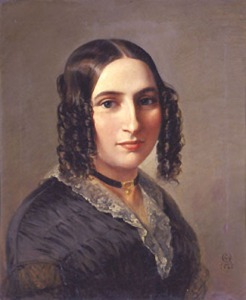






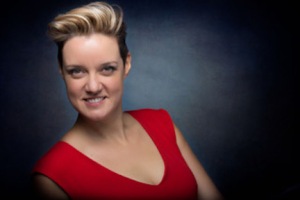





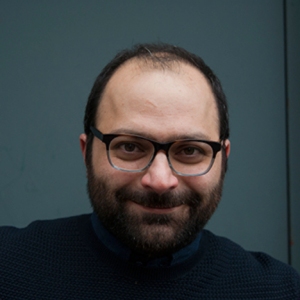
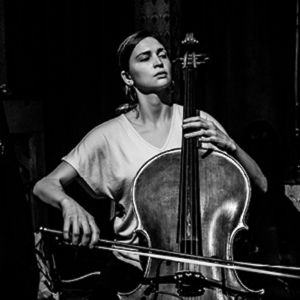
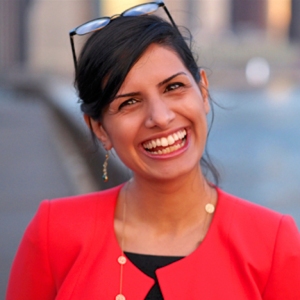
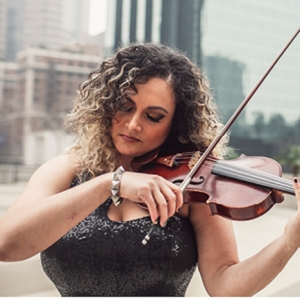

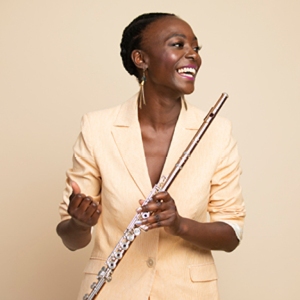




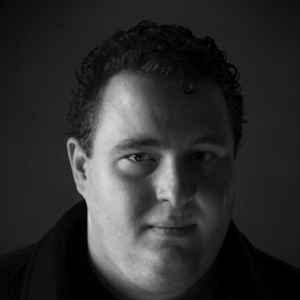

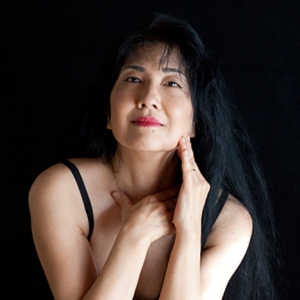
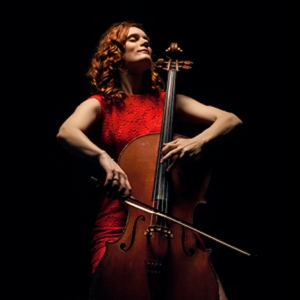
Classical music: Today is the 75th anniversary of the atomic bombing of Hiroshima. Here is disturbing music that sonically depicts the charred remains of the people and the city
1 Comment
PLEASE HELP THE EAR. IF YOU LIKE A CERTAIN BLOG POST, SPREAD THE WORD. FORWARD A LINK TO IT OR, SHARE IT or TAG IT (not just “Like” it) ON FACEBOOK. Performers can use the extra exposure to draw potential audience members to an event. And you might even attract new readers and subscribers to the blog.
By Jacob Stockinger
Today is the 75th anniversary of the atomic bombing of Hiroshima (below) and the dawn of the Atomic Age.
On this Sunday, it will be the same anniversary of the atomic bombing of Nagasaki (below).
Whether you agree or disagree with President Harry S Truman’s decision to use nuclear weapons to end World War II between Japan and the United States, the disturbing music at the bottom uses sound to help the listener picture the charred remains of the people and the devastated cities, seen below in a photo from The New York Times.
It is hard to imagine music being used more descriptively than in this disturbing and even terrifying piece that has received more than 2 million views on YouTube.
“Threnody for the Victims of Hiroshima” was composed by the celebrated Polish composer Krzysztof Pederecki (1933-2020, below), who died just over four months ago. Here is a link to more information about the composer: https://en.wikipedia.org/wiki/Krzysztof_Penderecki
And here are some links to historical accounts of the Hiroshima and Nagasaki bombing:
From cable TV channel CNN, here is an account of the two bombings in photos: https://www.cnn.com/2020/08/04/world/gallery/hiroshima-nagasaki-atomic-bomb/index.html
Here, also from CNN, is an account of Tinian Island, the place where the bombings started: https://www.cnn.com/travel/article/hiroshima-atomic-bomb-75th-anniversary-intl-hnk/index.html
Here is a comprehensive history about Hiroshima and its culture, both pre-bombing and post-bombing: https://en.wikipedia.org/wiki/Hiroshima
There will be much more to see, hear and read today and this weekend on National Public Radio (NPR), on many TV news channels including the History Channel and on PBS (especially The Newshour), and in many newspapers as well as on the internet.
If you know of other noteworthy accounts, please leave the name with a link in the Comment section.
What do you think of the nuclear bombings of Hiroshima and Nagasaki?
And what do you think about the musical depiction?
The Ear wants to hear.
Share this:
Tags: #AsianHistory, #AtomBomb, #AtomicAge, #BlogPost, #BlogPosting, #CableTelevision, #CNNNews, #EnolaGay, #FacebookPost, #FacebookPosting, #HarrySTruman, #HistoryChannel, #JacobStockinger, #KrzysztofPenderecki, #NationalPublicRadio, #nuclearweapons, #PolishComposer, #PresidentTruman, #PublicBroadcastingSystem, #StringMusic, #TheEar, #TheInternet, #TheNewsHour, #TheNewYorkTImes, #TheU.S., #ThrenodyfortheVictimsofHiroshima, #TinianIsland, #Wikipediaentry, #WorldWarII, #YouTubevideo, 75, account, agree, America, Americans, anniversary, Arts, Asia, atom bomb, atomic, Atomic Age, audience, blog, bomb, bombing, cable television, celebrated, channel, charred, city, Classical music, CNN, comment, composer, comprehensive, culture, dawn, dead, death, decision, depiction, descriptive, devastated, died, disagree, disturbing, Enola Gay, Facebook, fallout, first, forward, hard, Harry S Truman, hear, help, Hiroshima, historical, History, History Channel, imagine, information, Internet, Jacob Stockinger, Japan, Japanese, Krzysztof Penderecki, like, link, listener, Music, musical, National Public Radio, newspapers, NPR, nucelar, nuclear, Orchestra, PBS, Penderecki, People, photos, Picture, pictures, place, Poland, Polish, post, post-bombing, posting, pre-bombing, President, President Truman, Public Broadcasting System, radiation, read, reader, remains, section, see, share, Sound, start, string music, strings, Sunday, symphony, tag, Television, terrifying, The Ear, The New York Times, The Newshour, threnody, Threnody for the Victims of Hiroshima, Tinian Island, Truman, TV, U.S., United States, victim, view, Viola, Violin, war, warfare, weekend, Wikipedia, Wisconsin, world, World War II, YouTube